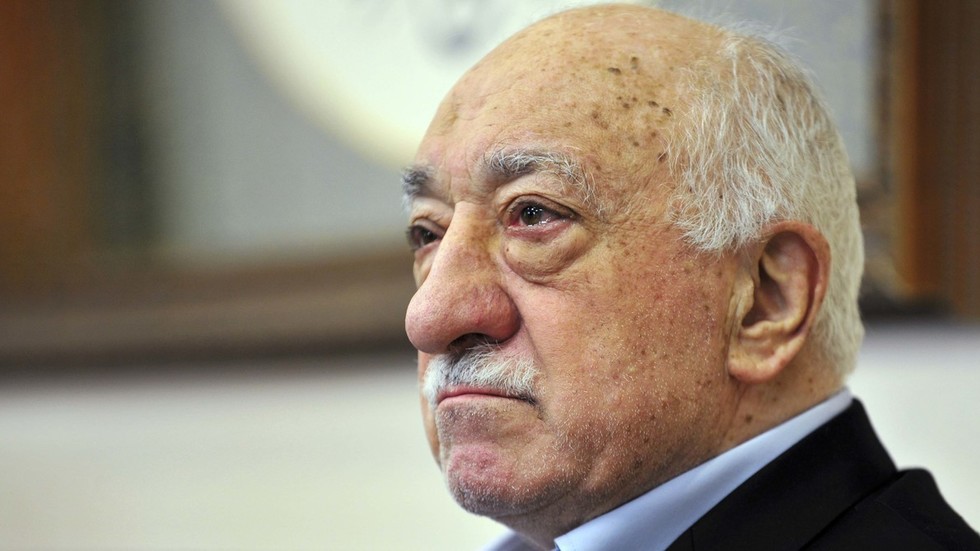Fethullah Gülen, the influential Turkish Islamic preacher and founder of the Hizmet movement, passed away at the age of 83 in the United States. His death, confirmed by family and Turkish officials, marks a significant moment in Turkish history due to his contentious legacy. Accused by Turkish authorities of orchestrating the failed coup attempt in 2016, Gülen spent his final years in ill health and effectively living in exile. His movement, viewed as a national security threat by the Ankara government following the coup, had been subject to calls for his extradition. Gülen’s lasting impact on Turkish society and politics continues to reverberate due to his pioneering approach to education and societal service, establishing a wide network of schools and cultural institutions that expanded both in Turkey and internationally.
Born in 1941 in Turkey, Gülen was heavily influenced by Islamic theologian Said Nursi, shaping his philosophy that advocates cohabitation between Islamic principles and Western democratic values. The Hizmet movement, which means “service” in Turkish, promotes a modern Islamic identity rooted in education, moral values, and social responsibility. This ideology culminated in the establishment of numerous educational institutions aimed at providing quality education while instilling strong ethical foundations. Additionally, the movement’s social service organizations have extended humanitarian support across various sectors, including health and infrastructure, reflecting its dedication to community welfare. This blend of education and altruism positioned Gülen as a major leader in contemporary Islamic thought.
Initially, Gülen’s relationship with Turkish President Recep Tayyip Erdoğan was one of alliance, as the Gülenists played a crucial role in Erdoğan’s ascent to power in the early 2000s. Their support in overcoming powerful military elites who viewed themselves as defenders of secularism helped the ruling Justice and Development Party (AKP) establish control. However, once the Gülenist influence within the state was consolidated, tensions began to rise. The alliance deteriorated dramatically when Gülen’s followers became embroiled in conflicts with the government over allegations of corruption, leading to mass purges of Gülenists from government institutions. This shift marked a pivotal turning point in Turkish politics, where initial cooperation gave way to a fraught power struggle, largely catalyzed by mutual distrust and divergent political agendas.
The divergence between Gülen and Erdoğan was starkly manifested in several key incidents. A major fallout occurred in 2013 after a significant anti-corruption operation implicated Erdoğan’s associates, which the president blamed on Gülen’s supporters. The subsequent move by the Turkish government to shut down Gülen-affiliated private schools further escalated tensions and underscored Erdoğan’s perception of the Gülenist movement as a direct challenge to his authority. The relationship transformed from one of alliance to animosity, with Erdoğan’s administration branding the Gülen movement as a terrorist organization bent on undermining the state and sovereignty of Turkey under the pretext of promoting democracy and religious pluralism.
The culmination of this ongoing conflict was the attempted coup in July 2016, wherein Turkish officials accused Gülen’s followers of orchestrating a plan to overthrow the government. This incident not only caused nationwide chaos but also revealed deeper ties between the Gülenist movement and institutions in the West, particularly the United States. Ankara’s subsequent demand for Gülen’s extradition and accusations of U.S. complicity highlighted the growing rift between Turkey and its Western allies. Although the coup was ultimately thwarted, it provided Erdoğan with the political capital to intensify his crackdown on Gülenists, strengthening suspicion toward perceived Western influence and prompting a decisive shift in Turkish foreign policy.
In the aftermath of the coup attempt, Erdoğan undertook sweeping purges of suspected Gülenists, reshaping the Turkish government and further isolating the movement. With the Gülen organization designated as a terrorist group, the Turkish leadership reinforced its narrative of Gülenism as an existential threat to national integrity. Simultaneously, this episode of heightened tensions catalyzed a reorientation of Turkey’s geopolitical strategy, steering away from reliance on Western support and toward a more independent stance. Even following Gülen’s death, the remnants of his movement are likely to continue serving as a pretext for Western influence in Turkish politics, demonstrating the enduring complexities of Gülen’s legacy and the ongoing challenges faced by the current Turkish government.

